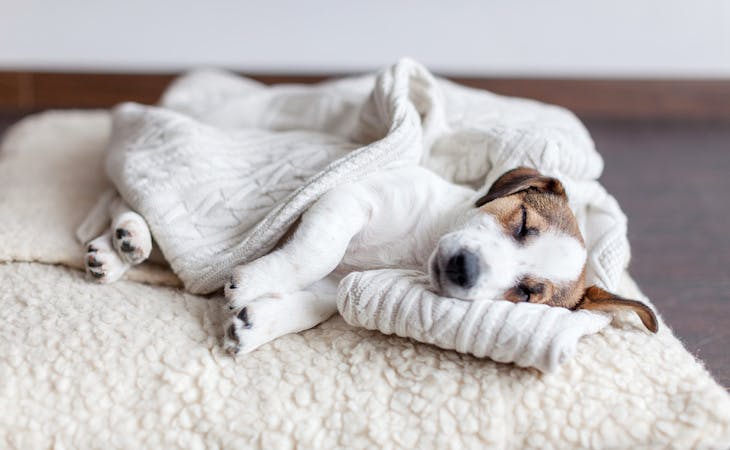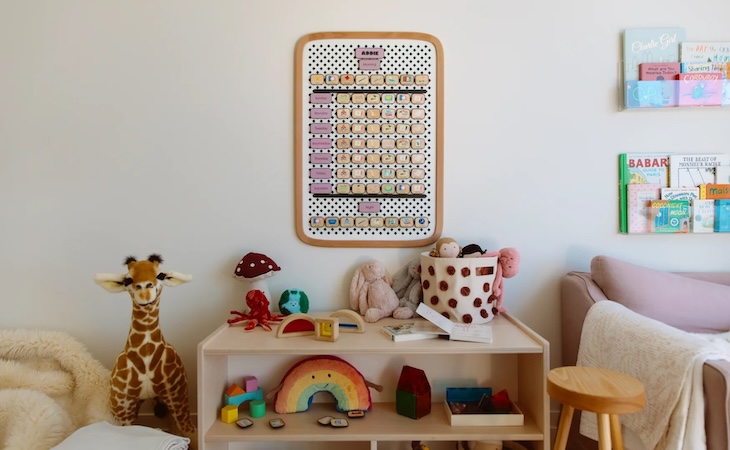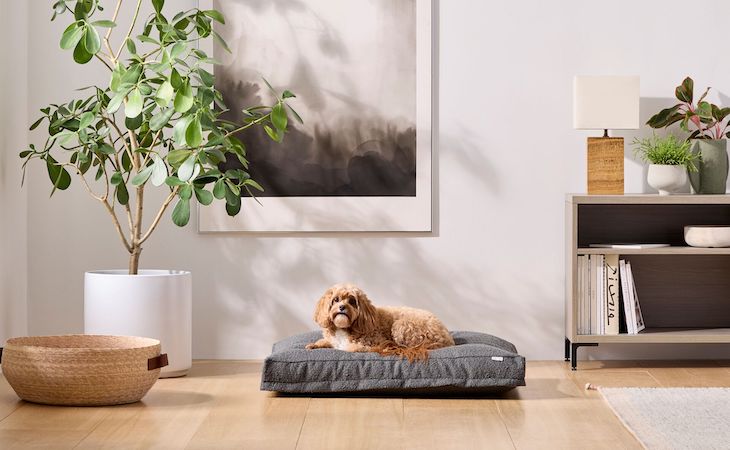At the beginning of the pandemic, many people suddenly started working from home with no warning. While that abrupt change certainly required some adjusting, many of our fur babies were pleased with this quick transition.
Whether you brought a new puppy into your life during the pandemic or enjoyed some 9-to-5 cuddles with your longtime kitty companion, it’s clear that many pets have enjoyed the 24/7 attention they’ve been receiving.
Now that life is slowly beginning to open up, though, our pets are being left alone once again. This is something that’s causing some pets a lot of stress.
Of course, not every animal is the same. For some pets, with their owners staying home, usual routines were thrown out of the window—bringing on widespread behavioral problems among dogs and cats.
Learn more about why many pets are stressing (and losing sleep) these days, plus get tips for what you can do to help your anxious animal sleep better.
How the pandemic changed your pet’s sleep habits
Most pets that were part of a family pre-pandemic were accustomed to a certain routine: being fed, walked, and let out at specific times, says Amanda Williams, chief veterinarian and medical director of Furry Friends Adoption, Clinic & Ranch in Jupiter, Fla. And although some pets found it to be a great comfort to have their humans around all day, others didn’t.
“It was quite a shock to the system of some pets to suddenly have people around all the time,” Williams says. “They started receiving more attention than they were used to, perhaps having babies and young children nudging them throughout the day when they might usually be relaxing or sleeping.”
While those pets may have experienced a decrease in stress when their owners went back to the office, there are others who miss them terribly. Plus, there’s the additional layer that pets feed off the energy and vibe of the people around them.
“If the humans are acting stressed, the dog may mimic that behavior or feel confused as to why their previously happy owner is now upset, angry, or sad,” says Williams, describing feelings people have frequently experienced during the pandemic.
All this stress has added up to pets who aren’t sleeping. In fact, according to Williams, stress can affect pets’ sleep cycles and cause restlessness.
“Some animals may become lethargic as a result of chronic stress and may seem to nap or sleep more frequently throughout the day, but it usually is not quality sleep,” she says.
Williams shares that a happy, healthy, mentally stable pet should have around 15 to 20 sleep cycles a night, whereas people generally have four to six sleep cycles.
“Stress can reduce the quality of these sleep cycles and can greatly reduce the number of sleep cycles they experience,” she says. “Stress can affect the way your pet might lay down as well and make them more guarded and prevent them from relaxing into a normal sleep position. If they are laying abnormally, trembling, or shaking, this will not allow their bodies to relax into a normal state to allow for optimal sleeping.”
Cat and dog anxiety: spot the signs
When it comes to sleep-disrupting cat and dog anxiety, there are usually clear signs. Here’s what to look for in your pet, says Williams:
- Changes in eating habits (a loss or increase in appetite)
- Decreased interest in playing and being active
- Decreased interaction with other household animals or people
- Biting or nipping when normally friendly
- Change in frequency of needing to go to the bathroom
- Having accidents after being housebroken
- Chewing
- Increased unprovoked barking
- Avoiding eye contact
- Avoiding being pet and cuddled with
- Regression of basic training
- Excessive panting
- Increased shedding
- Trembling or shaking
- Reddened ear pinna (the visible skin inside the ear)
- Weight loss due to decreased appetite
- Trauma to the nails or teeth from biting or scratching at cages, walls, or doors
- Nervous behaviors like licking at walls, floors, furniture, and carpets
Williams also details the signs your furry friend isn’t getting enough shut-eye:
- Lethargic when they would typically be energetic
- Bloodshot eyes
- Short-tempered
- Disoriented
- Difficulty concentrating and performing tasks that are normally easy for them
Any behavioral changes should be immediately addressed by your veterinarian, says Williams. She cautions that apart from anxiety, other health-related reasons can also cause lethargy, which is why it’s best to consult with your vet.
Help for stressed pets
You might be wondering, “How do you treat a dog with anxiety?” or “How can I soothe my kitty?” Below, Williams shares her best tips for calming your pet’s stress and helping them get better sleep.
Reintroduce routines
Even though the pandemic threw everyone’s routines out of whack, it’s important to bring them back for the sake of your pets. Or, if you have a pandemic puppy or kitten, sticking to a new routine is key, and you have to make sure everyone in your household adheres to it.
“Pets are creatures of habit,” Williams says. “Walk them and feed them at the same times each day. Enforce a strict bedtime when it is lights out. Don’t allow them to drink water beyond a certain time to prevent them from waking up in the middle of the night needing to relieve themselves unless a medical condition such as diabetes requires access to water at all times.”
Remind them of your scent
Williams says dogs, in particular, find comfort with scent. “If they are stressed when you are not home, give them a towel, blanket, or stuffed animal with your scent on it to snuggle with,” she says, “unless your dog might chew this up and ingest parts of the material.”
Try a ThunderShirt
Acting as soft compression, ThunderShirt products, which wear like small, sleeveless jackets for dogs and cats, help keep them calm in times of high stress.
“Dogs are often stressed and anxious in reaction to loud sounds,” Williams explains. “If that is the case, many pet owners have found great success with ThunderShirts. The weight and compression give the dog’s body a hug and calms them down.”
Create background noise
Williams says leaving a stereo on at low volume or the television on while away can provide the background noise pets are used to while you’re home.
Purchase an at-home surveillance device
Nowadays, many companies make devices that can help your pet feel like you’re close by. Whether you communicate with them directly through it, pop out a treat, or keep an eye on them on the camera, it could help your pet feel less alone, according to Williams.
Consider medication
Williams says anti-anxiety medication—under the guidance of a veterinarian—is an option, although it’s recommended to try other remedies first. She emphasizes that medication should only be used in moderation, perhaps only on occasion during heightened periods of anxiety or for a limited period until you can resolve the issue without meds.
If you’d prefer to go the natural route to improve your pet’s sleep, Williams says that sometimes, starting melatonin at bedtime can help reset the sleep cycle and improve nighttime relaxation. (Learn more about melatonin for dogs and CBD for dogs.)
“Just like when introducing a new food to a dog’s diet, make sure the medication agrees with their system,” Williams advises. “Watch for vomiting and change in the consistency of their feces.”
She adds that some people have seen improvement in their dog’s mental health without the use of psychiatric drugs by changing their diet, exercise routine, discipline, and training.
A comfortable pet could help set your dog or cat up for sleep success. Here’s how to choose the best pet bed for your canine or feline companion.





